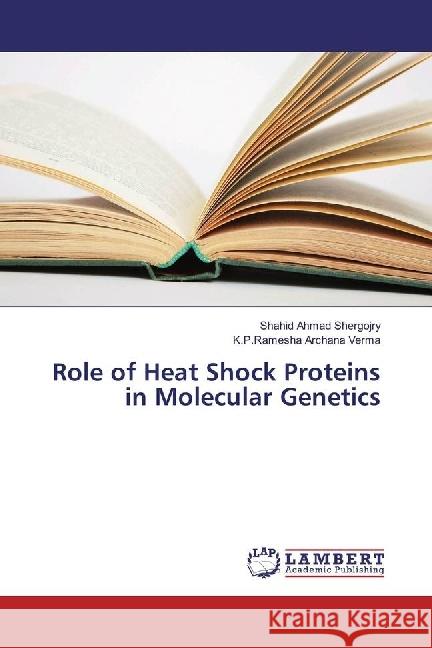Role of Heat Shock Proteins in Molecular Genetics » książka
Role of Heat Shock Proteins in Molecular Genetics
ISBN-13: 9783659917844 / Angielski / Miękka / 2017 / 124 str.
A group of proteins are synthesized during heat stress called Heat Shock Proteins (HSPs),they are a family of proteins from pleiotropic genes that protect cells from toxic effects of heat and other stresses. The thresholds for expression of HSPs are correlated with levels of stress naturally undergone by the animals.Members of the HSP60 family are called chaperonins. HSP60 protein expression increases in response to heat shock and other stressors. The mammalian HSP60 proteins are ring-shaped molecular chaperones that are synthesized in the cytoplasm and are then translocated to the mitochondria where they use the energy of ATP hydrolysis for protein folding.Among members of the HSP family, HSP70 (namely, HSP70.1 and HSP70.2) is the most abundant and temperature sensitive (Dokladny et al., 2006) HSP70 transcription is increased by heat shock as well as other stress stimuli such as oxidative stress, ischemia,inflammation, or aging and can be an indicator of stress in cells.HSP90 (Heat Shock Protein 90) is a molecular chaperone and is one of the most abundant proteins expressed in cells (Csermely et al., 1998).











